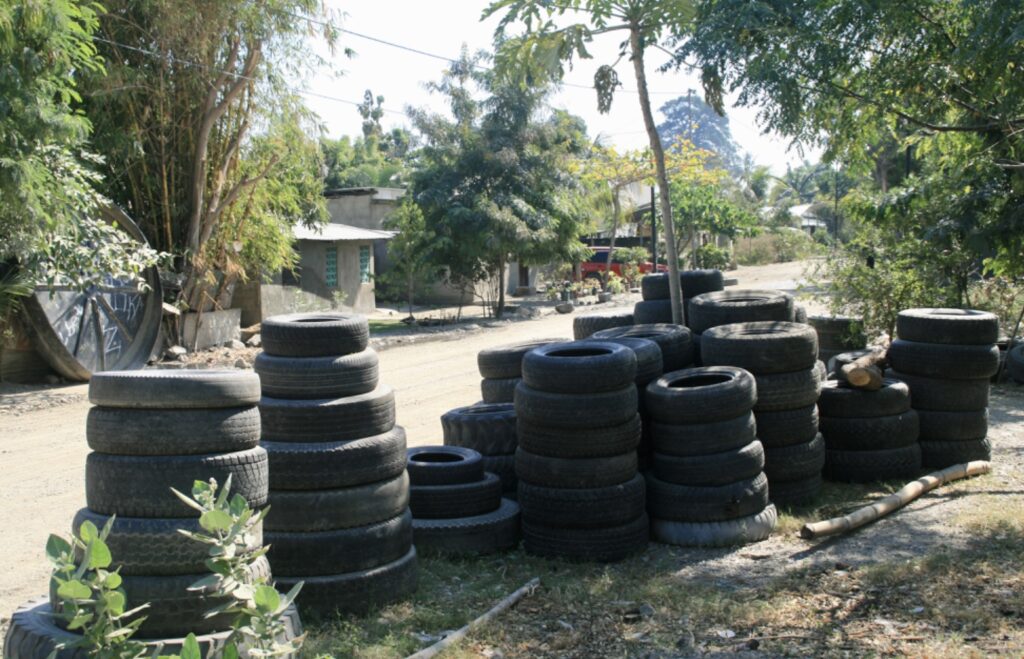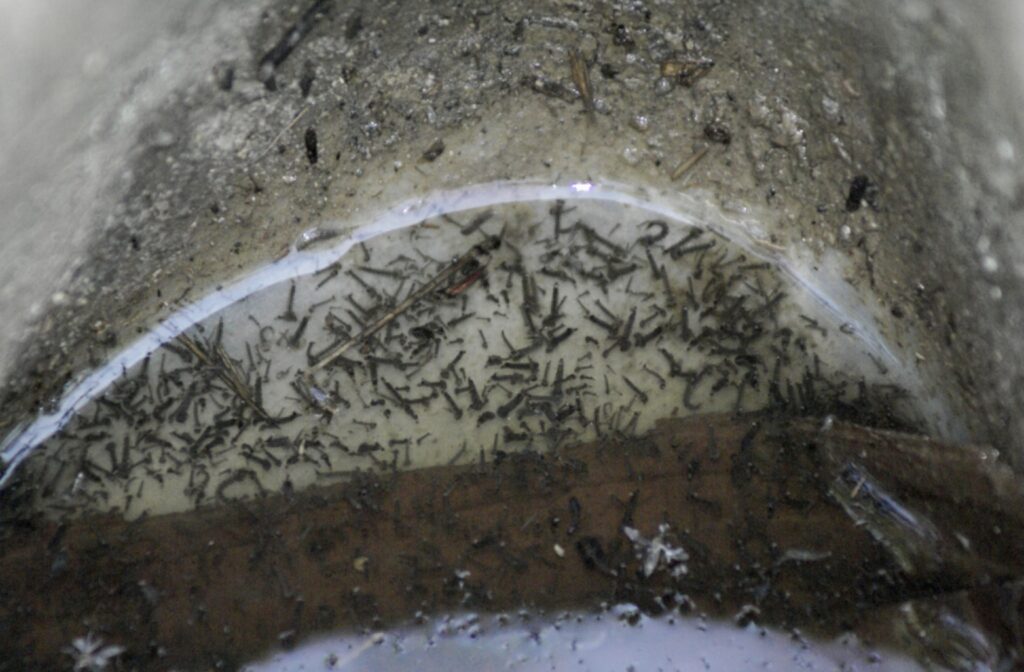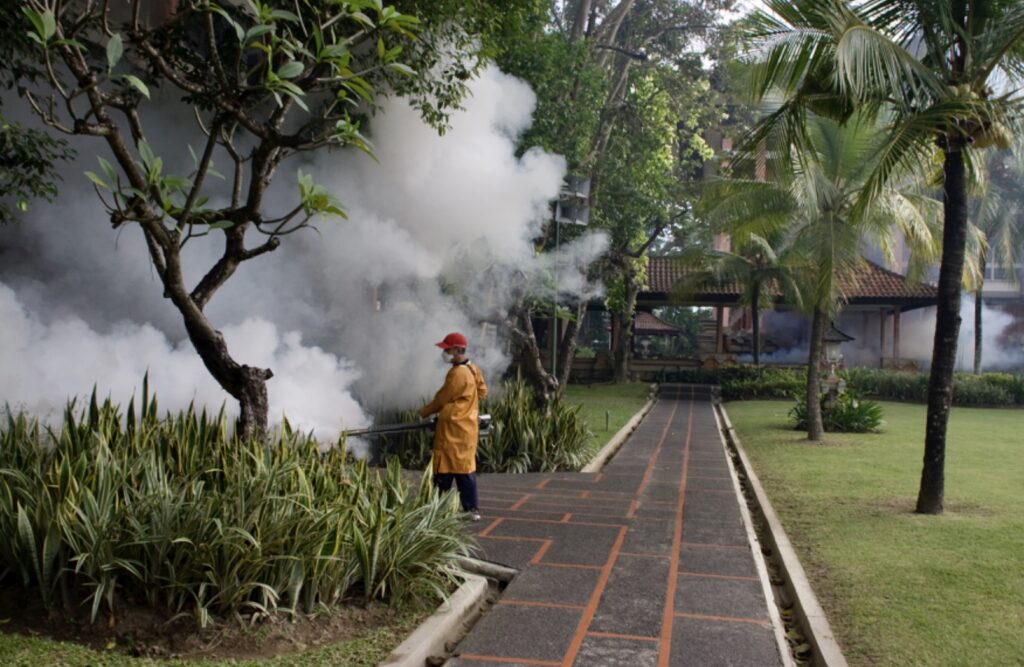By Henrylito D. Tacio
Photos: WHO and Wikipedia
These days, the disease that has mostly hogged the headlines is the coronavirus disease 2019 (COVID-19). Unknowingly, there are other diseases that are equally life-threatening, if not more lethal.
Take the case of dengue which, despite the availability of a vaccine, is still taking a toll among children and adults. What is alarming is that it shares a lot of common symptoms with COVID-19.
“As dengue cases rise during the COVID-19 pandemic, increased caution is needed from medical practitioners to avoid instances of misdiagnosis,” pointed out health experts.
Common symptoms shared by dengue and COVID-19 are fever, muscle, and joint pains, headache, and fatigue. “With symptoms similar to COVID-19, dengue remains as one of the top illnesses we should always be mindful of,” urged health experts.
Vomiting (may include blood), swollen glands, rashes, severe abdominal pain, and bleeding gums are symptoms exclusive to dengue. Symptoms exclusive to COVID-19 include diarrhea, loss of taste and smell, lesions on toes, hemoptysis, and bluish lips or face.
Also known as “break-bone” fever, dengue is the Swahili term for “a sudden overtaking by a spirit.”
Dengue causes a broad spectrum of diseases. “This can range from subclinical disease (people may not know they are even infected) to severe flu-like symptoms in those infected,” explains the Geneva-based World Health Organization (WHO). “Although less common, some people develop severe dengue, which can be any number of complications associated with severe bleeding, organ impairment and/or plasma leakage.”
There are four distinct but closely related serotypes of the virus that cause dengue (DENV-1, DENV-2, DENV-3, and DENV-4). “Recovery from infection is believed to provide lifelong immunity against that serotype,” the WHO says. “However, cross-immunity to the other serotypes after recovery is only partial and temporary. Subsequent infections (secondary infection) by other serotypes increase the risk of developing severe dengue.
Like death and taxes, dengue exempts no one: fat or thin, ugly or beautiful, rich or poor, educated and illiterate. Children exposed to open areas while playing are more prone, although adults are not spared.
Franklin was a lawyer based in Manila, but at one time, he went to Baguio for a vacation, and it was there that he contracted dengue. A few days after being bitten, he suffered a high fever, severe headache, and pain behind the eyes. There was also an outbreak of rashes in some parts of his body.
From Baguio, he was brought to Manila. But it was already too late. He suffered a hemorrhage in the liver and died three weeks after being confined in one of the well-known hospitals in Makati City.

Ideal breeding site (WHO J Gusmao) 
Breeding site (WHO J Gusmao)
Even doctors die from dengue, too! There was a case of a lady physician whose daughter suffered from dengue. Unknowingly, a mosquito that bit her daughter had bitten the doctor. A few days after the daughter died, as a result of dengue, the doctor also showed manifestations of having dengue. She also died of the same disease.
The WHO says dengue fever usually starts suddenly with a high fever, rash, severe headache, pain behind the eyes, and muscle and joint pain. The severity of the joint pain has given dengue its other name. Nausea, vomiting, and loss of appetite are common. A rash usually appears three to four days after the start of the fever. The illness can last up to 10 days, but complete recovery can take as long as a month. Older children and adults are usually sicker than young children.
Most dengue infections result in relatively mild illness, but some can progress to dengue hemorrhagic fever (DHF). With DHF, the blood vessels start to leak and cause bleeding in the nose, mouth, and gums. Without prompt treatment, the blood vessels can collapse, causing shock.
“Children are much more likely to get DHF than adults,” explains Dr. Allan Schapira, who used to be the person-in-charge of infectious diseases at the WHO regional office in Manila. “This is the reason why children are much more at risk of dying. In adults, dengue fever usually does not develop to the severe form, DHF. Besides, in many tropical areas, immunity builds up during childhood, so many adults do not get dengue fever, even if they were bitten by an infected mosquito.”
“Dengue is the world’s most important viral disease transmitted by mosquitoes,” says Dr. Duane Gubler, health administrator of the US Centers for Disease Control and Prevention (CDC). “The mosquitoes become infected when they feed on someone who has the virus.”
The mosquitoes thrive in areas close to the human population. “The dengue mosquito lays its eggs in water-filled containers inside the house and surrounding areas of dwellings (this includes non-used bottles, containers, discarded waste, and tyres, among others which hold water,” the UN health agency says.
The eggs hatch when in contact with water. Eggs can withstand very dry conditions and survive for months. Female mosquitoes lay dozens of eggs up to 5 times during their lifetime.
Adult mosquitoes “usually” rest indoors in dark areas (closets, under beds, behind curtains). Here, it is protected from wind, rain, and most predators, which increases its life expectancy and the probability that it will live long enough to pick up a virus from one person and pass it on to the next.

The best protection against dengue is not to be bitten by the mosquito carrying the virus. According to Dr. Willie T. Ong, there are several things you can do about that. “There’s no need to panic (when it comes to dengue) because we have 10 ways to beat dengue,” says the 2007 recipient of the Outstanding Filipino Physician award from the Department of Health.
1. Clean up your backyard. Mosquitoes love to stay in the dark and damp areas. So if your garage is littered with boxes and assorted garbage, clean them up or throw them away. Don’t let them become mosquito havens. Schedule a weekend clean-up day.
2. Empty containers with stagnant water. The dengue-carrying mosquitoes breed in stagnant water. This means that flower pots, garbage cans, aquariums, unused swimming pools, tires, and other piles are potential breeding grounds for mosquitoes. So after the rains fill them with water, throw the water away. Next time, keep these containers closed and upside down. Flower vases should also be replaced weekly.
3. Check your surroundings for stagnant water. Some ornamental plant leaves have this “whorl” or cup-like shape that can hold water. Beautiful to behold but deadly in design. Turn them over and throw the water away. Upturned coconut shells are also notorious for holding water. Non-moving rivers, especially in squatter areas, are full of mosquito eggs.
4. Close your doors and windows. Some people open their doors in the morning for a whiff of fresh air. They also believe that mosquitoes would leave the house and go into the sunlight. “But my advice is to keep your doors shut at all times,” he advises. If it’s too stuffy, then place a screen door that keeps the flies and mosquitoes outside.
5. Spray insecticide regularly. To rid your house of mosquitoes, flies, and cockroaches, spray insecticides every few days. Make sure you spray those dark corners, crevices, and cabinets. You’ll be amazed at the number of pests you’ll find dead in the morning. Just make sure that household members are not exposed to the insecticide as they are not the target. Just spray selected rooms when people are not around.
6. Wear pants, pajamas, long sleeves, and socks. Mosquitoes are attracted to your breath as you exhale, so they know how to reach you even in the dark. “I guess they love bare, plump skin, especially the kids who don’t shoo them away and let them suck as much blood as they want,” Dr. Ong believes.
7. Apply insect-repellants or use mosquito nets. If your kids are going hiking, camping, or off to school, you can apply insect-repellants like Off-Lotion. Kids like to play outdoors and are prime targets of these mosquitoes. You can wipe it on selected areas of the clothing like collars, sleeves, and pants. Avoid applying lotion on the eyes, mouth, or hands.
8. Kill those mosquitoes. When it comes to dengue, it’s either kill or be killed. Instruct everyone to kill as many mosquitoes and flies as they can. Once you’ve got them trapped in your bathroom, show no mercy. Mosquitoes belong to the forest, not in your home.
9. Involve the whole community. The best way to defeat dengue is if the whole community is aware of the threat. Ask your community leaders to schedule a clean-up day. The danger is in those empty houses and lots, which are excellent breeding places for mosquitoes. Become a volunteer to monitor and clean up your surroundings.
10. Spread the word: Dengue fever is here. You’ll never know where dengue will strike next, so better be prepared. Inform your neighborhood.

